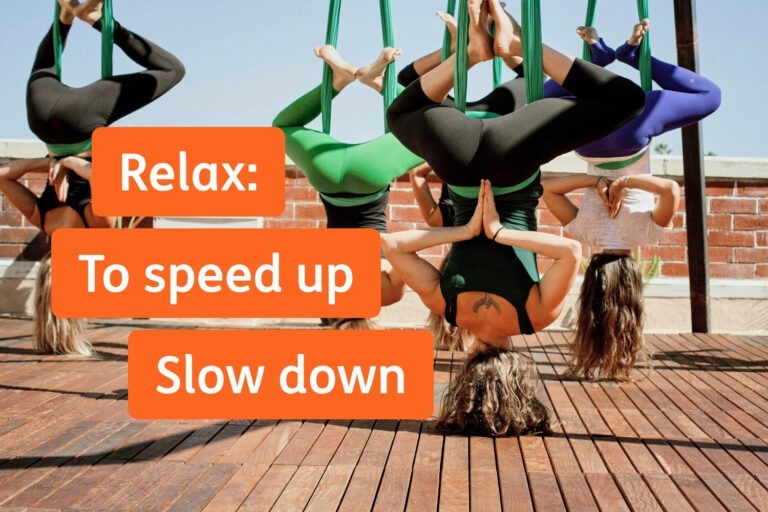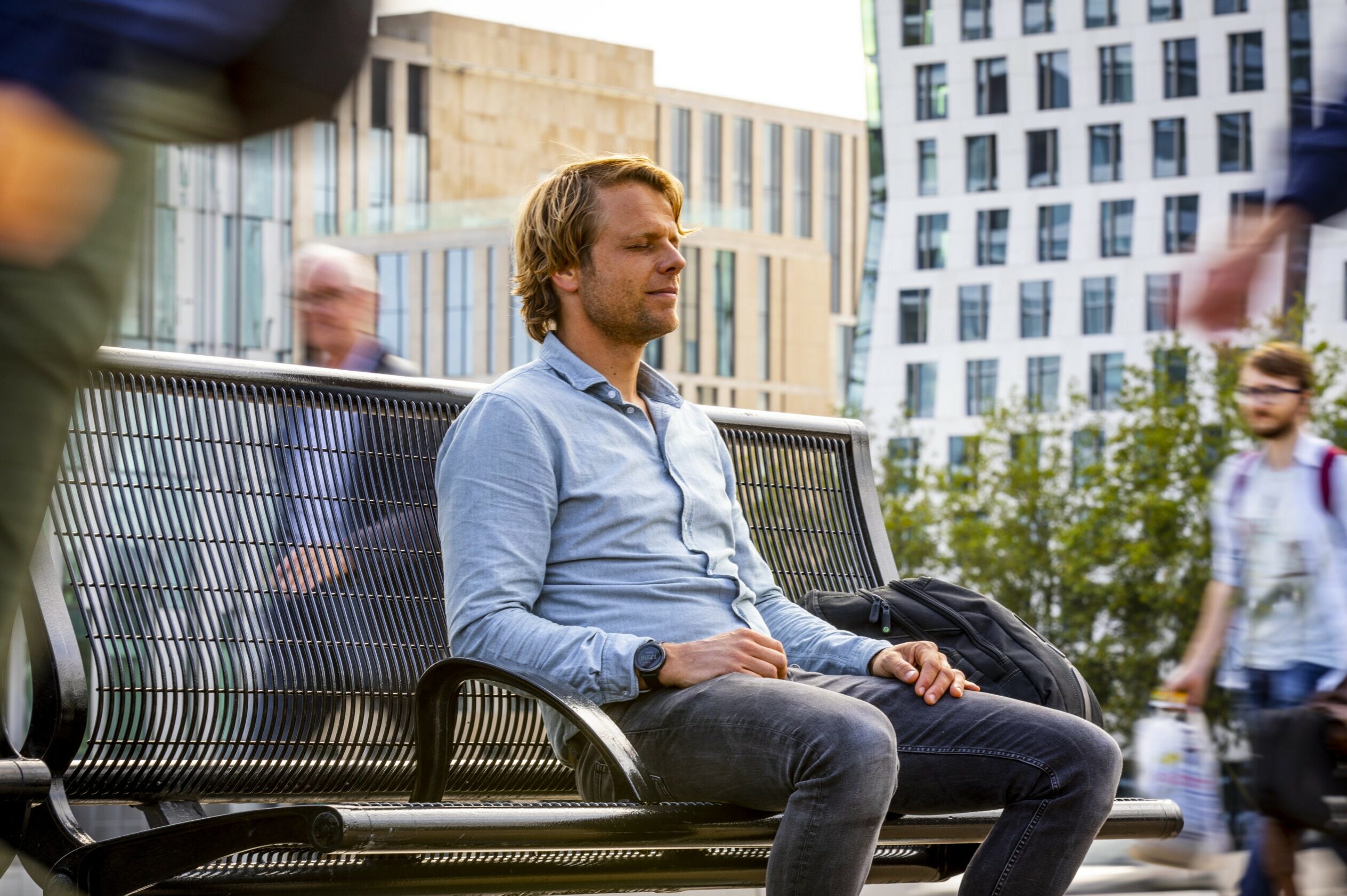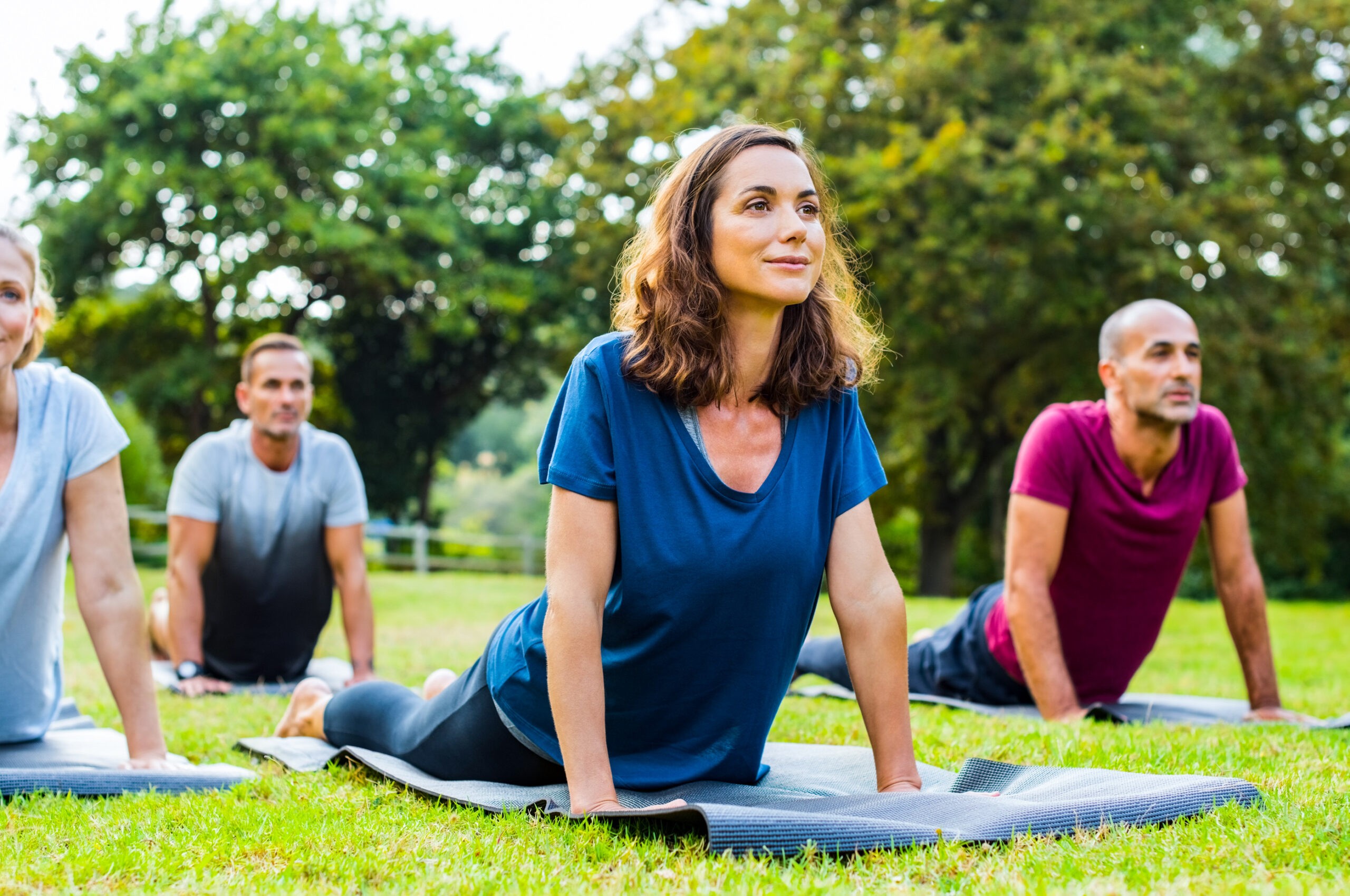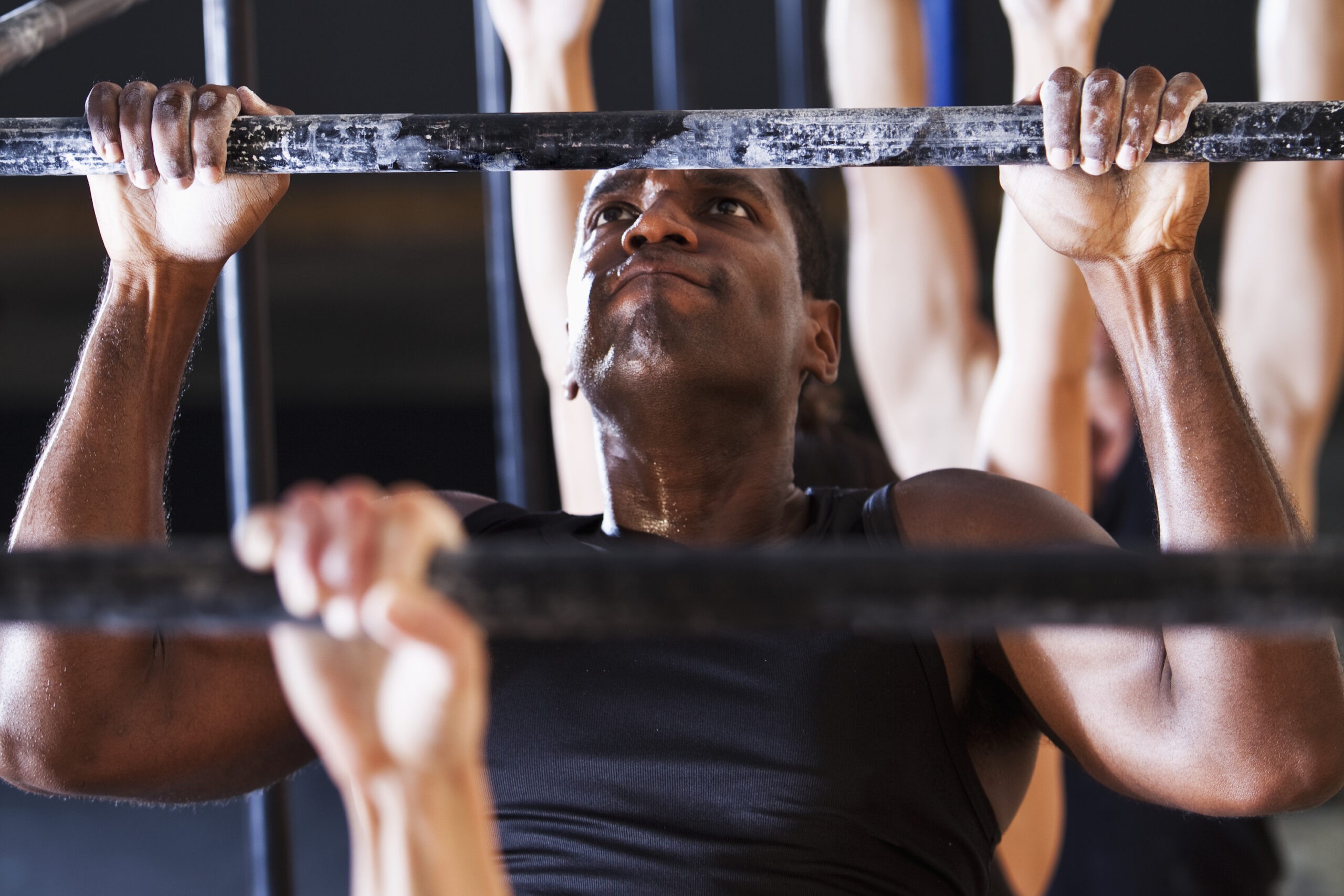Looking to enhance your overall wellbeing? Then take five regularly throughout your day, and do what you do while you are on a real vacation: Relax.
Why Relax?
While you’re working, you burn tons of energy and you build up stress. This however doesn’t have to be a problem at all. As a matter of fact, you generally need some kind of pressure to get moving and you will often deliver your best performances when the pressure is high.
At the same time, your capacity to endure is limited – regardless of the strength of your willpower and your motivation – and too much or prolonged stress will wear you out. That’s why – to stay on top of your game – you need to take breaks regularly to recover: to consciously lower stress and to recharge your batteries. Relaxing helps you to do both!
Too Much Stress
Nowadays, most people are ‘always on’. This generates a substantial amount of stress and thus increases – baseline – recovery needs. Additionally, people will by definition develop negative thoughts and feelings throughout their day. Some do it constantly due to the negativity bias in their brain. On top of this, people will inevitably experience impactful life events from time to time. They are practically guaranteed to develop excessive levels of stress at one or more points in their life.
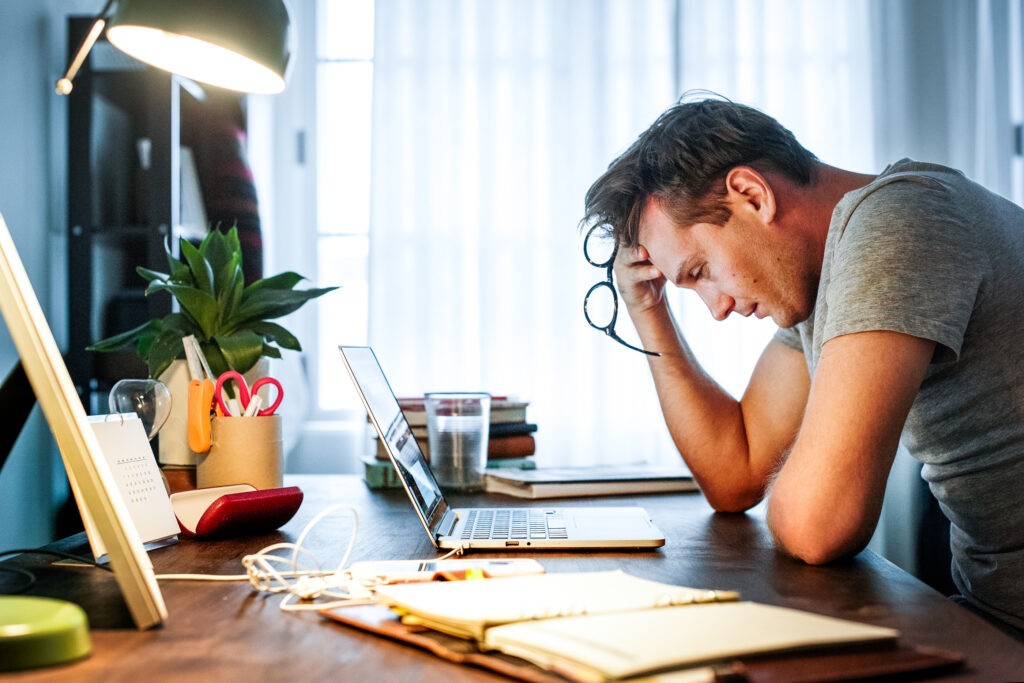
Chronic stress leads to continuously elevated levels of cortisol. This contributes to high blood pressure and cardiovascular disease, and leads to structural changes in the brain. It can hardwire pathways for stress, which in turn may contribute to anxiety, depression and addiction. Chronic stress also contributes to obesity, both through direct mechanisms (causing people to eat more) or indirectly (getting less sleep and exercising less).
Fortunately, there are many ways to manage stress effectively. A key strategy that will allow you to lower it fast and effectively, is to relax.
The Power of Relaxation
Sometimes a small change in activity and focus can make a world of difference. After a heated argument with a colleague, it may help to relieve stress by focusing on something else. At the same time, simply distracting yourself from what is stressing you out will often not really help you to lower your stress level effectively, let alone recharge your batteries. In order to get the most out of your relaxation, it is important that you realize what the cause of your stress is in order to find a strategy to deal with it. With the right strategy, you can recover fast and effectively.
HOW you relax is probably more important than WHAT you do to relax. A chat with a friend can boost your mood and distract you from what is draining your energy; but if that chat ends in an argument, or if you have to watch your words, it will only add to your stress. The same goes for taking a hot bath, or going for a walk; it can be very relaxing, except for when your mind keeps running, constantly caught up in negative thoughts.
Passive & Active Relaxation
When considering the benefits of relaxation, it makes sense to distinguish two types. Passive relaxation – reading a book, taking a hot bath, listening to music, watching a movie or getting a massage – is basically doing something comfortable that relaxes you. Active relaxation consists of special techniques and exercises that have been historically developed to effectively lower stress and, in many cases, enhance mental performance and recharge energy, such as deep breathing techniques, (mindfulness) meditation, Progressive Muscle Relaxation (PMR), yoga, Tai-chi etc.
The Relax Response
Although both forms can help you lower your stress levels and recharge your batteries, active relaxation techniques work more effectively. They enable you to trigger your relaxation response; a state of deep relaxation, which slows down your metabolism, lowers your blood pressure and reduces your response to stress.
The relaxation response is conceptually the opposite of the stress response. It is associated with reduced psychological distress and physiological changes such as a decrease in oxygen consumption, heart rate and blood pressure. Regularly evoking it counteracts the physiological effects of the stress response and builds resilience. It can help cure health issues caused or worsened by chronic stress, such as memory loss, lack of ability to focus, insomnia, hypertension, and anxiety disorders. All in all, any practice that can trigger your relaxation response is a powerful recovery tool.
How Much Downtime Do You Need?
In a way, relaxation is like exercise. The harder you rest, the faster you recover. Whether you are eating with friends, listening to music, reading a book, practicing yoga or walking on the beach; the more involved you are and the more mindful your experience, the more effective your downtime will be.
Short breaks: If you want to be sharp – and stay sharp throughout the day, and if you want to be in a positive state of mind when coming home from work, ready to greet your family, you need to take breaks throughout your day. Take them at least once every 90 minutes, when you are challenging yourself mentally and emotionally.
Depending on the pressure you are dealing with, and how well you are at slowing yourself down, your short breaks can vary enormously. Many can recharge themselves in less than five minutes. Some even in one minute. But when your job continuously demands full focus, you may need much longer, independent of your relaxation skills.
Long breaks: Apart from the short breaks, you will obviously need a few longer breaks. Meal times are perfect for taking these breaks. Interaction with colleagues, friends and family is generally of great value to your wellbeing.
It’s good to reflect on the quality of your longer breaks every once in a while, since you are investing substantial amounts of time in them. Are they really allowing you to check out, slow down and recharge affectively, or are they actually costing you extra energy?
Time to Process: Furthermore, you simply need some time in which you can kick back and relax, reflect; listen to music, go for a walk, stare out the window, take a long shower. Allow your brain to process the events of the day, and free up space in your brain.
While reflection is essential to your performance and wellbeing, it may turn into worrying and rumination. When that happens, you obviously need to choose another strategy.
Get the Most Out of Your Downtime
Inspiration and practical tips
Relax Like a Pro
To increase the impact of your downtime, find out which method or strategy works best for you and start by planning regular moments for recovery. However small, they will soon turn into a routine, a healthy routine that will help you to relax and build resilience.

To optimize your results, combine activities which can trigger your RR. If you can add music or nature into what you are doing, then you can create moments of intense relaxation; relaxing like Pro!
Be Aware of ‘Left-Foot Braking’
When your mind is continuously racing at high speed, and you feel under pressure non-stop, then even the most powerful breathing or meditation exercise is analogous to what Formula 1 drivers refer to as ‘left-foot braking’. This is a technique where they go through a turn at full speed while applying the left foot to the brake. Yes, the break comes on, and yes the car slows down immediately, but only briefly, and before you know it, it’s the gas pedal that once again controls the speed.
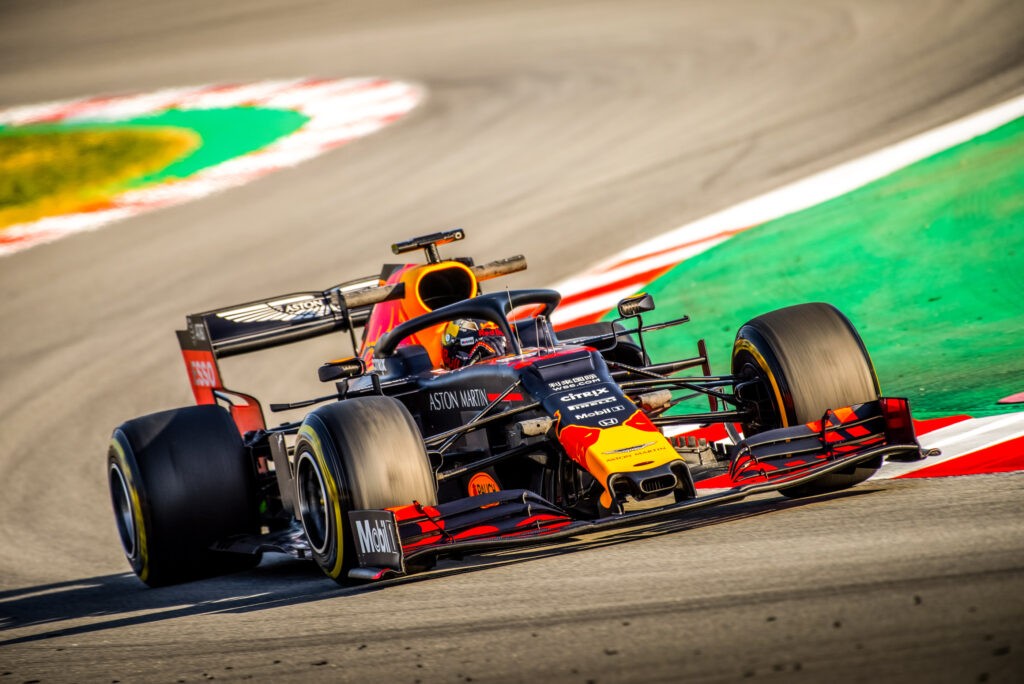
When you are dealing with high levels of stress, you should never rely on relaxation alone. You must also attack the root cause(s) of your stress, and strengthen your resilience. The weight you are carrying, how you perceive it, and how you deal with stress are all important. And, because regaining control is often easier said than done, it is best to seek help from an expert, someone who can help you navigate through the situation.
Don’t Skim on Your Sleep for the Sake of Relaxation
However important it is to relax and recover throughout your day, you should not trade it off for sleep. Sleeping short will kill your performance; your attention, focus, ability to deal with disappointments and regulate your emotions, they all suffer. Time for relaxation combined with short sleep is just another form of left foot braking.

